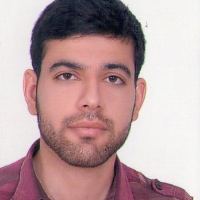A Hierarchical Approach to Political Values of the Islamic Revolution among Two Generations of Parents and Children
Author(s):
Article Type:
Research/Original Article (بدون رتبه معتبر)
Abstract:
The present study has been conducted to investigate the hierarchical approach of the parents and children to Imam Khomeini's political values. To this end, seven dimensions, considered as the key Islamic Revolution's political values in Imam Khomeini's thought, have been assessed, namely, freedom and the relation of religion with people’s votes, Islamic unity, duty and its relation with result, independence and lack of foreigners' interference in Iran’s affairs, inseparability of religion and politics, fighting arrogance and support for revolutionary groups, and finally support for the disinherited in the world. The data that were collected, using quota sampling, from the youth aged 17-25 of Ilam city, were analyzed to determine parent vs children priorities of the Islamic Revolution political values. Among parents, the most positive approach was towards independence, while the most negative approach was towards freedom. Among children, the most positive approach was towards independence while the most negative approach was towards freedom and lack of separation of religion from politics.
Keywords:
Language:
Persian
Published:
Journal of Political Thought in Islam, Volume:4 Issue: 16, 2018
Pages:
57 to 92
https://magiran.com/p1898897
سامانه نویسندگان
مقالات دیگری از این نویسنده (گان)
-
A Boolean Analysis of the Impact of Development on Social Inequality in Iran
Mohammadreza Taleban *,
Journal of Social Development, -
بررسی تغییر جایگاه و نقش زنان سینماگر در فیلم های پرفروش قبل و بعد از انقلاب اسلامی
*، فریده کریمی ارقینی، سعیده داوری مقدم
فصلنامه مطالعات میان فرهنگی، زمستان 1402 -
The Effect of Iran's Islamic Revolution on Tunisia's Islamic Movement
Mohammad Fatehi *, Amir Azimi Dolat Abadi
Bioquarterly Journal of Revolution Studies, -
The The experience of cultural globalization and the consumption of western clothing)Case study: female undergraduate students of Shiraz University(
Ezatollah Mirzaei*, Elham Keshavarz Moghadam, , Mehdi Mirzaei
Counseling Research & Developments,



